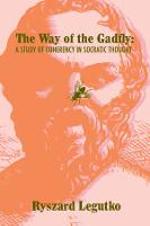This new series of scholarly reflections on the interpretation of Socratic philosophy is an inviting combination of intuition and meticulous analysis. Ryszard Legutko provides the reader a monumental service in his confrontation of the most important and influential literature written on the subject to date. He likewise opens the conversation to European contributions and renders Socrates truly a figurehead of future philosophy far beyond being a pillar in ancient thought. Legutko argues that Socrates was systematic, and his moral views were ultimately grounded in his theory of knowledge that was composed of logically connected propositions ( logoi ). Reading Plato, Legutko’s intuition that Socrates was quite the opposite of the quirky, ironic, and enigmatic character is supported by his demonstration of Socrates’ consistency, unity, and hierarchy of thought. He extends Socrates’ coherency to a criticism of the democratic mind, framing him even less as a random spit-fire and more the grounded observer. Socrates, argues Letgutko, is well aware of the importance of general concepts and he intended to free these concepts from democratic distortions and give them firm and independent foundations. In short, ‘the way of the gadfly’ is a beautiful and precise exploration of order that seeks to be changed by the awareness of this order, and how to wield concepts apart from the motives of arrogance and chaos–neither of which represent nature, and therefore are foreign to the way of the gadfly.

The way of the gadfly : a study of coherency in Socratic thought
ISBN: 9781587315930
Format: Paperback
Publisher: The University Of Chicago Press
Origin: US
Release Date: September, 2024


